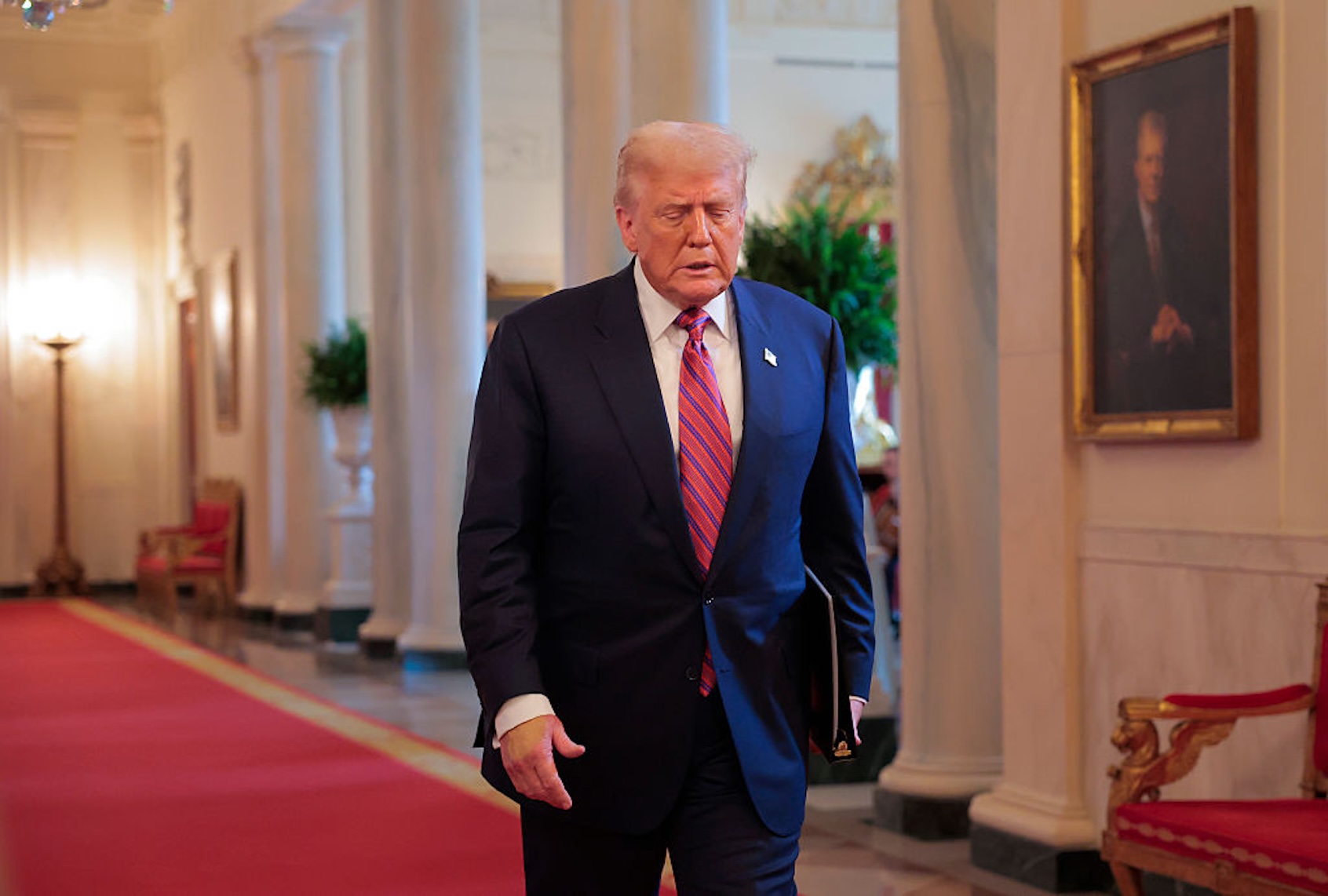President Donald Trump recently shared a post on his social media platform, Truth Social, claiming that former President Barack Obama has received royalty payments from the federal government for the use of the term “Obamacare.” This assertion, which lacks any factual basis, suggests that Obama has been collecting $2.5 million annually since 2010, totaling $40 million in taxpayer dollars.
The claim originates from a satirical website known as the Dunning-Kruger Times, which produces content intended for entertainment rather than factual reporting. The site explicitly states, “Everything on this website is fiction. It is not a lie, and it is not fake news because it is not real.” Their disclaimer emphasizes that any resemblance to actual persons or events is purely coincidental.
In his post, Trump included an image stating, “DOGE halts yearly payments of $2.5 million to Barack Obama for ‘royalties linked to Obamacare.’” Despite the serious tone of the claim, the term “Obamacare” has not been trademarked, and therefore no royalties could be legitimately generated from its use.
The former president’s decision to share this information to his audience of approximately 11 million followers raises questions about the responsibility of public figures when disseminating information. While the post generated considerable interest, the lack of attribution and the source’s intent to satirize highlight the potential for misinformation to spread widely, especially on social media platforms.
This incident illustrates the broader challenges of distinguishing between fact and satire in the digital age. The Dunning-Kruger effect, from which the website takes its name, describes the cognitive bias where individuals overestimate their knowledge in areas where they lack expertise. By sharing the satirical claim, Trump not only perpetuated a false narrative but also showcased the risks associated with unverified claims circulating in political discourse.
As misinformation continues to be a significant concern in contemporary politics, it is crucial for both public figures and the media to prioritize accuracy and fact-checking. The implications of spreading false claims can have lasting effects on public perception and trust in political institutions.
In a landscape where misinformation can easily gain traction, the responsibility lies with influential figures to ensure their communications are grounded in verifiable facts. As for the term “Obamacare,” it remains a key component of the Affordable Care Act, which continues to impact millions of Americans without any associated royalty payments to its namesake.







